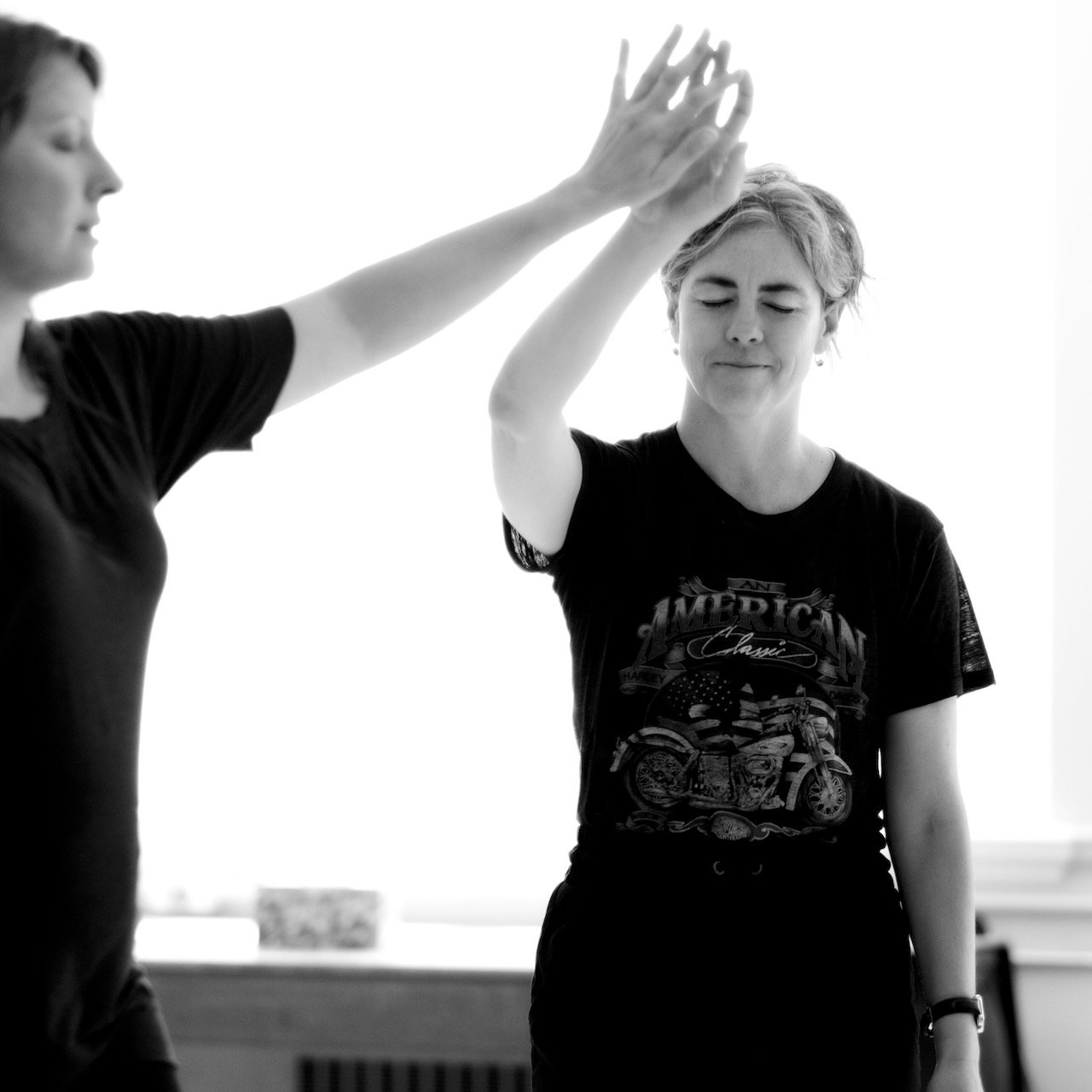
Embodied Learning and Practice
Researching embodied and movement-based approaches to leadership, organizational, and community development.
“We are what we practice and we are always practicing.”
Caring, Resilient, and Collaborative Leadership in a Changing World
The arts sector has faced numerous challenges in recent years stemming from increased complexity and radical uncertainty. Funding and financial sustainability, the long-term impacts of the pandemic, ambiguous business models and digital transformation, retaining and engaging a diverse audience, and the mental health and well-being within the arts community are examples.
To survive and thrive in these volatile conditions, arts organizations must transition from "concrete plans and solid executions" operating models to "flexible minds and adaptable, resilient practices.” In the face of such complexity and uncertainty, the value of crisp visionary leaders and perfect managerial control gives place to inclusive values in a more adaptive, innovative, and collaborative culture better equipped to navigate the complexities of today's landscape.
Together with fellow researchers Mairéad Filgate (Independent Dance Artist) and Mazi Raz (Ivey Business School), I am exploring the potential of embodied ensemble-based improvisation to develop caring, resilient and collaborative leadership practices among diverse teams faced with increased complexity and radical uncertainty. By examining how artists and leaders can, together, adopt improvisation, the arts sector can create new organizational models, mindsets and working cultures that thrive in complexity and lead in uncertain conditions.
This research is supported by the Canada Council for the Arts through their Strategic Innovation Fund: Seed program.
Embodied Worldmaking with Wild Soma
Wild Soma is a collective of experienced embodied artist facilitators formed in 2021 to support the research and practice of embodiment as a world making process. Core members Julia Aplin, Shannon Litzenberger, Andrea Nann and Roula Said are established dance artists, performance makers, movement facilitators and community mobilizers. Their shared interest in embodiment practice as a world-making proposal is the basis of their collaboration. Interested in animating the self-in-the-world relationship, Wild Soma is a platform to research, design, prototype and experiment with interventions that centre new ways of being through aesthetic embodied participatory experience.
Wild Soma’s activities are currently supported by a two-year research grant from the Canada Council for the Arts through their Strategic Initiatives Fund: Cultivate program.
Embodied Leadership: Chalmers Fellowship (2019-2023)
In 2019, I was awarded a generous Chalmers Fellowship from the Ontario Arts Council to explore the potential application of embodied creation practices beyond their usual art-making aims. My work in the areas of leadership development, community organizing, programming, systems thinking and arts policy research inspired me to investigate the intersections of embodied practice, collective leadership and transformational change processes.
This inquiry has unearthed incredible discoveries that grow from interconnected fields of study across the spectrum of sciences and humanities - from cognitive science to philosophy, from neurobiology to aesthetics, from anthropology to epigenetics, and from psychology to linguistics. The how of us - our embodied selves - is a complex interconnected set of self-in-the-world relationships. As new discoveries continue to emerge about the nature of this relationship, embodied practices and approaches are becoming the new transformational change capital.
Through my ongoing exploration, I’ve learned about the neuroscience of change and the nature of human development, about embodied and inter-relational systems of knowledge production, about right relations and Indigenous wise practices, about the philosophy of aesthetics and meaning-making, about concepts of power, truth, and social justice, about transforming conflict, about regenerative economics and environmental justice, about the ongoing impacts of neoliberalism, colonialism and post-Industrial capitalism, about stress, wellbeing and trauma, and about the ways in which embodied and somatic practices are capable of moving us toward the kind of transformative change we want to create in the world.
In Person
Before the pandemic, I had the opportunity to visit and collaborate with a host of organizations already embracing embodied practice as part of their leadership development and learning processes. Companies like the THNK School of Creative Leadership in Amsterdam, KaosPilot in Copenhagen and Mindful Leadership in Berlin are each exploring the application of practices like mindfulness, embodiment and experience-based meaning-making processes. Closer to home, I had the great pleasure of learning about embodiment and conflict transformation processes from Margie Gillis as a participant in her Legacy Project.
Online
Since COVID, I’ve had to shift my exploration into the virtual space and thankfully many learning organizations made their offerings virtual. I was able to continue my exploration through incredible online programs, taking courses such as the Embodied Facilitator Course (Embodiment Unlimited UK), the Neuroscience of Change (Coaches Rising), Embodied Activism (Lumos), Embodied Leadership Core (Strozzi Institute) and the 50hr Embodied Social Justice Certificate Course (The Embody Lab).
In the Body
Investing fully in my own daily movement practice has also been a significant part of my research. I connected with teachers both close to home and in the international community through virtual platforms. I explored various Somatic methods like Feldenkrais, MindBody Centring and Alexander Technique as well as movement pedagogies like Gaga (Ohad Naharin), Fighting Monkey (Jozef and Linda), and Movement Meditations offered by senior dance artists like Denise Fujiwara, Margie Gillis and others.







